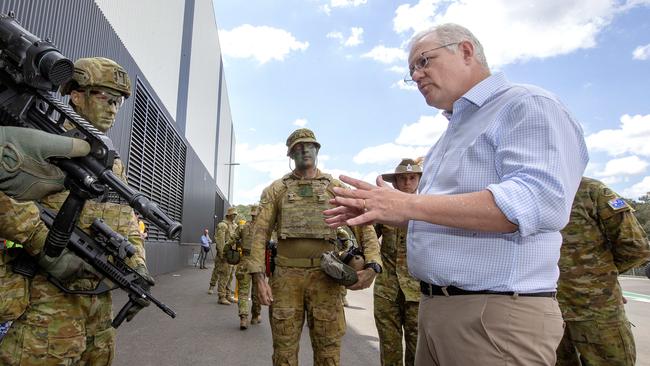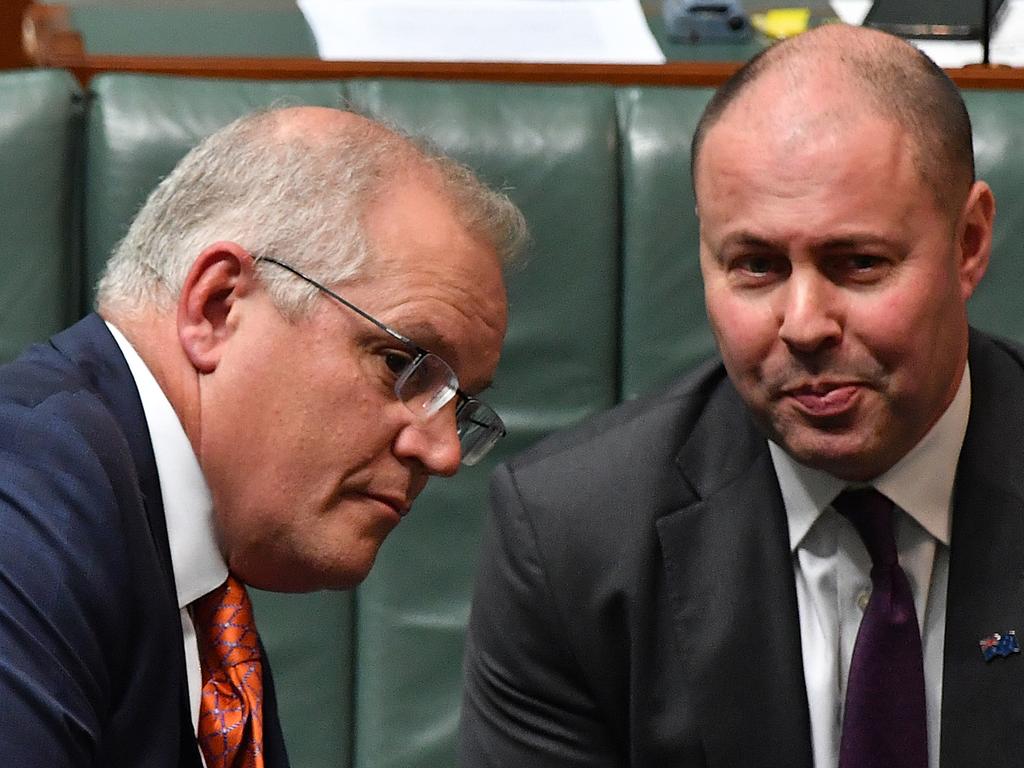
Voters are confident that Scott Morrison and Josh Frydenberg can lead the country out of the economic crisis. They believe the budget has delivered the stimulus needed to achieve it. And, perhaps for the first time, they are judging government and a budget through the prism of national interest in a time of crisis, rather than self-interest alone.
The post-budget Newspoll reflects the high levels of trust in the competence of the federal government that have been evident from the outset of the pandemic.
Facing the grimmest of economic and social conditions, most voters believe they will be better off as a result.
This duality was a feature of the 2019 pre-election budget that also produced a poll bounce for Morrison and set the government up well running into that campaign.
Income tax cuts were a dominant feature of both big-spending budgets.
Between 1999 and 2018 there have been only four budgets that have achieved the same outcome.
All were delivered by John Howard and Peter Costello — between 2004 and 2007 — when money was rushing out the door and into family budgets through the transfer payment system.
No budget was conceived during that period in times quite like the ones experienced now. And none have come with a price tag of $1 trillion in debt.
But amid the pandemic, Morrison and Frydenberg have achieved a substantial outcome beyond the ordinary. They have kept hope alive in a time of crisis.
Underneath the broader message, there are subplots to this budget narrative that are yet to play out.
The early start to the second stage of the personal income tax cuts appears to have, if only temporarily, neutralised Labor’s claims that tapering off JobKeeper by next March would deliver a catastrophic outcome.
The two vulnerabilities of the budget that Anthony Albanese and his Treasury spokesman, Jim Chalmers, have identified are also rooted in grievance politics.
The budget has landed far more favourably with men than women. This isn’t unique among budgets but is a vein that the opposition leader has already tried to tap through his childcare package. The wage subsidy for under-35s has also been seized on by Albanese as an issue of age discrimination.
The Newspoll shows that most voters believe the subsidy should have gone to all age groups.
Neither of these issues have had enough impact to shift voters from their predominant fixation on the broader economic health of the nation and returning people to work.
In this environment it is unlikely that a gender war is going to resonate.
But Albanese will believe that there is enough in these two issues to keep him in the game, even if only on the periphery for the time being. The exposure to risk, however, remains with Albanese.
The rejection of the “Morrison recession” — an absurd annotation lacking even a skerrick of credibility — is almost universal.
This tactical decision to build a counter budget narrative based on a premise that assumes all people are stupid may prove to be the moment that Labor took a further step backwards from any hope of electoral revival.
No one believes it to be true. It is highly unlikely that Albanese does. And Newspoll shows Albanese’s net approval ratings taking a dive since he started using it.
Even when considering the possibility that the poll may reflect nothing that Albanese has or hasn’t done, the least one could ask is: what is the point of it? Having invited comparisons of economic management, there is a strong contrary argument that Morrison can mount in response: the Hawke and Keating recessions.
In the 1980s, Australia’s economic growth declined by -0.2 per cent at a time global growth was running at +2.8 per cent (1983) and our trading partners were growing at an average +4.3 per cent. This downturn led to the Hawke reform era.
In the 1991 recession (under Paul Keating), Australia went backwards -1.3 per cent when the rest of the world was growing at +2.6 per cent.
The COVID recession tells the counter story. While Australia’s revised forecast is for growth of -3.75 per cent, the rest of the world is averaging growth of -4.75 per cent.
This has exposed Albanese to a deeper internal risk and deeper questions among colleagues of his political judgment.
While the bounce for the Coalition was just a point on the primary vote, it comes on the top of a similar gain in the previous survey three weeks ago. Willing it to go beyond 44 per cent would be unrealistic.
This has been the high-water mark since the election and is more than 3.5 points higher than the result that delivered it government. A 44 per cent primary vote would be equivalent to an eight- to 10-seat gain at an election.








Three central themes have emerged from last week’s budget.